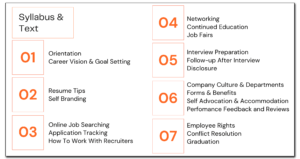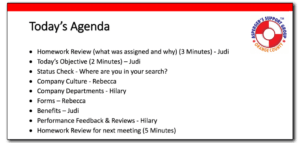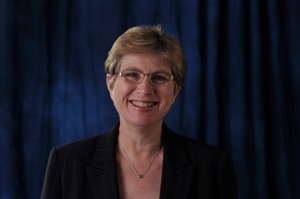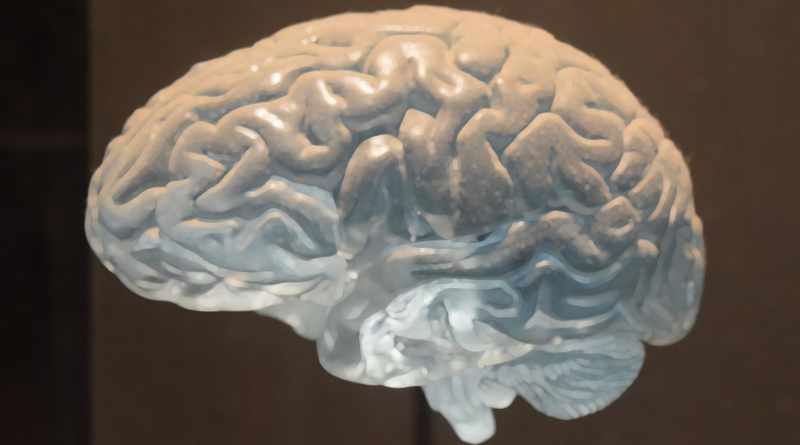
OCASG Career Club: Helping College Graduates on the Spectrum Start Their Careers
By Judi Uttal
The Unemployment Problem
Remember the old adage: “To get a good job, get a good education”? For individuals on the autism spectrum with a good education, unemployment and underemployment is a major challenge. The combined unemployment and underemployment rate for individuals with autism spectrum disorder (ASD) is 80 to 85%.
I have been the president of The Orange County Asperger’s Support Group (OCASG) for the last six years. OCASG is a nonprofit located in Orange County, California. Our mission is to help adults and teens, with high-functioning autism, Asperger’s, and PDD-NOS and their families, improve their quality of life. We do this through education, support, and social activities. We support around 2,000 individuals, located not only in Southern California, but due to online meetings, across the United States.
As the president of The Orange County Asperger’s Support Group, I repeatedly hear from adults and their parents regarding their concern and frustration of having invested in a four-year degree only to be unable to find employment in their field. Local resources, such as Department of Rehabilitation (DoR), provide support for our population. However, the services provided are directed at high school graduates not college graduates. One of the DoR programs in California is Workability. There are multiple levels of Workability support, designed for high school, community colleges, and 4-year colleges. Unfortunately, the four-year colleges in Orange County have not funded Workability for some time.
It was with that in mind, that I was determined to tackle the employment problem in Orange County. My concept was to create a job club where college graduates with ASD could meet and learn how to launch their careers. I wanted to create a club-environment to establish a support system, which would help the college grads in our community deal with the complexities of establishing a career path.
Over the course of many years, I reached out to potential partners: job developers, DoR vendors, transition initiative members, and job coaches. Despite my best efforts, no one was interested in helping.
Finally, in the summer of 2021, I found an organization willing to help; Zavikon. Zavikon is a new job development organization whose mission is to match qualified candidates with disabilities or those who are neurodivergent with employers who believe inclusion is the future. Zavikon was founded by Rebecca Beam and Hilary Kokenka, two professional women who have years of experience in business as well as inclusive employment. Luckily for me, when I spoke to Rebecca about my idea, she immediately got it and felt that it was aligned with the Zavikon mission and strategy.
Creating Career Club
Together, with Rebecca and Hilary, we drafted a mission statement:
“OCASG Career Club is a holistic program that focuses on providing training and support to enable college-graduates with ASD preemployment, during employment, and post-employment services designed to enable short and long-term career success. Whenever possible, OCASG Career Club will leverage existing agency, vendor, and company programs. This reduces costs and teaches participants to leverage supports available in the county and state. Additionally, OCASG Career Club will focus on building participant’s skills and confidence so that they can eventually manage their own careers.”
We then mapped out a lesson plan (See figure below).

We targeted 10-20 students. I established pricing of $100 per student and offered to pay Zavikon per class. Note that previously I looked into other partners, but the prices were around $700-$800 per student, which was too expensive for our members.
I publicized OCASG Career Club to the Orange County Asperger’s Support Group members. We ended up with sixteen students. I had each student provide details on their college major, employment history, and career goals.
We finalized a syllabus which included a text book, The Complete Guide to Getting a Job for People with Asperger’s Syndrome by Barbara Bissonnette. We developed reading assignments, homework that included watching video recordings, and a series of worksheets. The course ended up consisting of nine 90 minutes sessions, distributed over seven months. (For a complete syllabus, click here.) There were also a few supplemental sessions, with job developers and benefit experts.

Initially, I thought that Hilary and Rebecca would be the sole instructors, but because I have an MBA and a degree in computer science, a successful 30-year career as a technology marketing and program management executive, and the vision for Career Club, it made sense for me to become the third instructor.
Each month we mapped out an agenda (example above). We divided up the lectures based on our area of expertise. We always tried to leave time for discussions. Initially, we divided into smaller groups. I called these groups; “colleagues.” I wanted to communicate the importance of establishing colleagues at work. Sometimes the focus was based on the homework assignments, but sometimes the emphasis was on a critical topic. For example, we discussed whether you needed to mask or change in order to fit in at work. Another great session was about disclosure and how to advocate for yourself. Sessions were recorded as a courtesy for students who might have had a conflict.
At the end of the seven months, we had a special class where we solicited feedback and held a graduation ceremony.
Success Achieved
Overall Career Club went amazingly well. One of the parents who audited the OCASG Career Club said that it is was better than any other job-education program that his son had attended. What made it work so well was that Hilary, Rebecca, and I, shared a common vision. We also had strong business backgrounds, so that advice given, and lessons plans delivered were based on our real-world experience. It was also helpful to have well educated participants. In general, students were highly motivated to find employment. Many of the members had technical degrees making them well suited for engineering and software development jobs.
There were several benefits of the OCASG Career Club:
- Employment Found: Job developers focused on neurodiverse hiring contacted us regarding open positions. Similarly, we were able to advocate for our members. The result was that we established several internships with a medical devices company. As a result of these expanded relationships, we were able to help find employment opportunities for Career Club members. Another interesting twist was that three of the Career Club participants were employed by Amazon performing warehouse related jobs. In this case, they didn’t necessarily want a new company, but rather wanted a different position with Amazon. We were able to start a dialogue with Amazon about internal mobility. Overall, of the sixteen members of career club, eleven are employed, although not all of them are working in career-track job.
- Job Support Teams: One of our goals was to help participants build a team leveraging DoR and other education and employment programs. We were able to establish a strong relationship with Department of Rehabilitation and were able to expedite onboarding, which allowed the club members to take advantage of the DoR’s on-the-job training program. Similarly, we were able to attract additional DoR vendors, such as EvoLibri, a vendor who works with a similar cohort up in Northern California to offer their services in Orange County. Members responding to our evaluation survey indicated their satisfaction in working with job partners.
- The Importance of Brand: The population we serve is often not aware of the importance of their personal hygiene and responsiveness to emails. As a result, they sometimes give the impression of not being interested. This can be a problem when they are looking for work and miss out on a potential offer. We ended up spending a bit of time on the importance of brand and how their actions contribute to their brand. During the seven months, we saw significant improvement from nearly all of the Career Club participants.
- Greater Confidence: At the conclusion of Career Club, we distributed a survey to our participants. Almost all of the participants expressed greater confidence in seeking employment.
What’s Next
OCASG and Zavikon will be offering another Career Club in September. Additionally, we will be hosting OCASG Career Club 2.0 which will be offered to graduates of the first OCASG Career Club. During OCASG Career Club 2.0, we plan to continue to support job searches and provide ongoing education and mentoring related to business.
My final message to is that if you see a problem in your community, rather than complaining, why not find a partner and solve it? You never know what you can accomplish when we all work together as a team. If you are interested in starting a job club, you may want to purchase a copy of The Autism Job Club: The Neurodiverse Workforce in the New Normal of Employment, by Michael S. Bernick and Richard Holden. May you find the right people to help you make your vision into a reality.

Judi Uttal is president of the Orange County Asperger’s Support Group (OCASG) a nonprofit organization improving the quality of life for individuals and families dealing with high-functioning autism. For the last ten years, Judi, a Distinguished Toastmaster, has led a Toastmaster Gavel Club designed to help young adults with ASD improve their social and communication skills.
Judi retired from a career as a high technology marketing executive. She holds a Bachelor of Science in Math/Computer Science from UCLA and an MBA from the Tepper School of Management at Carnegie Mellon University. Judi is married and is the mother of a 30-year-old son, Joshua, who was diagnosed with High-Functioning Autism at the age of three. Josh graduated from California State University, Fullerton with a major in Cinema and Television.




